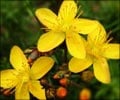Herbal medicine is perhaps the oldest form of treating any illness known to mankind. The excessive reliance on allopathy, however, has kept people from using herbal medicines.
Fortunately, herbal gardens have now been set up to grow rare medicinal plants, and there are experts on hand to provide knowledge about them to the people.Just two miles from Punjab’s Hoshiarpur District, lies Satial, a forest range in the Shivalik Hills. The climatic conditions here are favourable for the growth of medicinal plants and the State Forest Department has cashed in on this to establish a herbal garden on more than an acre of land.
The garden has almost 70 types of medicinal plants, and is now a tourist spot and a training centre for both students and farmers.
The trees, herbs and shrubs that are grown here can cure illnesses such as diarrhoea, epilepsy and pulmonary tuberculosis.
“We are creating a herbal garden to promote old systems of medicine like Ayurveda and Unani. If we use these raw materials, at least our coming generations would be aware about the utility and the services provided at this herbal garden,” said Ishwar Singh, Chief Wildlife Warden, Chandigarh.
The herbal nursery at Chandigarh is spread across 35 acres, and is the home to 65 varieties of medicinal trees and 55 herbal varieties, including herbs and shurbs.
Advertisement
The marketing mechanism plays an important role in promoting alternative farming. Once that marketing mechanism develops, then farmers can produce items of very good quality and quantity.
Advertisement
The concept of herbal parks and nurseries is a step to conserve medicinal plants for study and research and also to popularise the use of local medicinal and aromatic plants in the area.
This pioneering effort by Punjab is being now followed by Haryana, Himachal Pradesh and New Delhi.
The western world will realise the enormous wealth of Ayurveda.
The World Health Organisation (WHO) estimates that four billion people, 80 per cent of the world population, presently, uses herbal medicines.
Source-ANI
SRM/J










